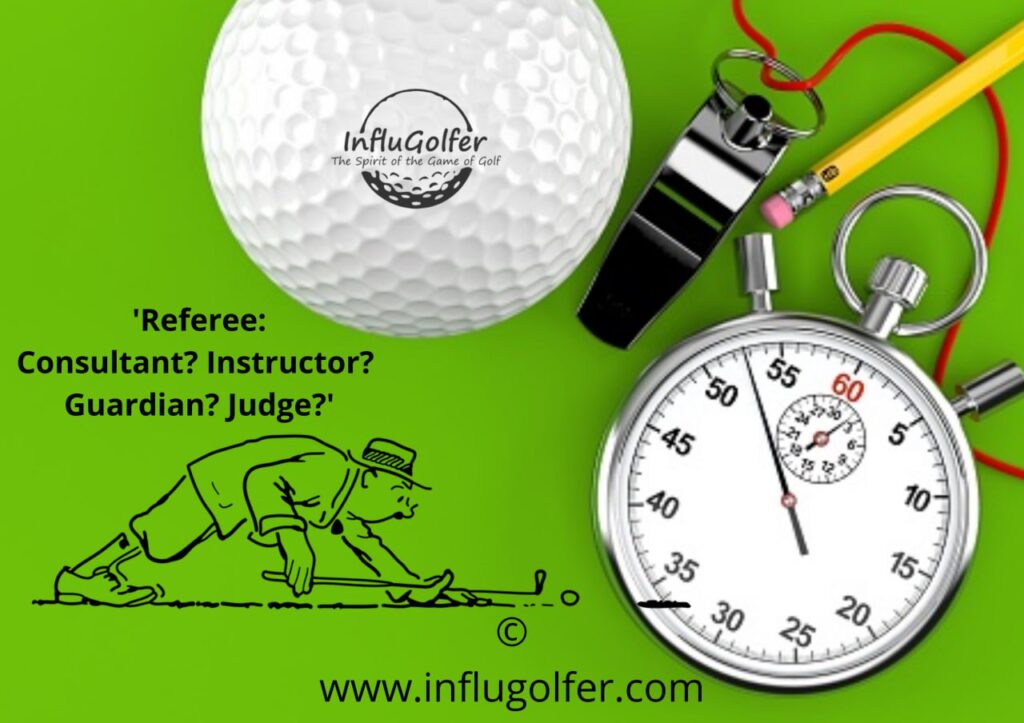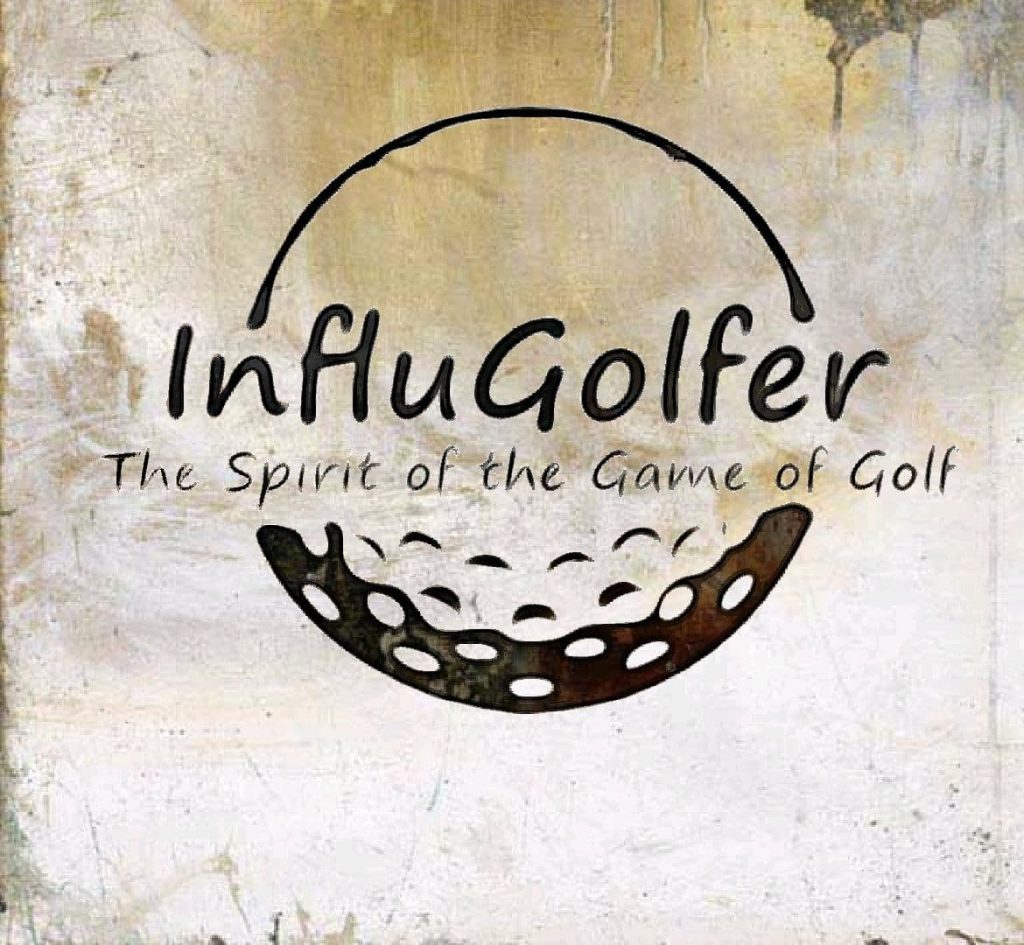
A stimulating R&A initiative recently brought to the interviewer’s microphones a professional player (Video: Matthew) and, subsequently, an international referee (Video: Zonchello).
The result is an interesting version of the relationship that players have towards the Rules of Golf which leaves room for various valuations on the role of the referee.
But let’s go in order.
The interview with the professional player was basically focused in the understanding of what a player expects from a referee during a tournament.
The player began by making a series of admissions: in particular she recognized that players not only do not know the rules in detail, but they are not even interested in knowing them thoroughly, and to avoid to make mistakes (especially in tournaments broadcasted by the TV) they call for the referee, even in situations that are not at all complicated, for the sole purpose of being relieved of any responsibility.
She also admitted that sometimes the player who is facing with “a bad lie” calls for a referee, even knowing that there is not much to be done, with the only hope that the referee knows something he does not know (… or maybe that the referee makes a mistake …) and admitted that often the player pretends not to be satisfied with the ruling received even knowing that there were no other possibilities.
That said, the player stresses the need for the referee to be self-confident. Any hesitation (or need to deeply investigate all the specifics of the applicable rules) generates in the player immediate disappointment and nervousness as he would be looking forward to quick and certain answers: just few words to describe the options available without getting lost in details (or, worse, interpretative doubts) which, as mentioned before, the players do not care. The professional player almost seems to suggest the idea that it is better to deal with a referee who makes a mistake but flaunts confidence and immediacy in his responses than a more scrupulous and precise referee but too meticulous and hesitant.
However, she concludes, it is very rare for a player to ask for a second opinion mainly for not delaying further the resumption of the game “… actually (in her experience) the second opinion never denies the first opinion and therefore it is just a useless waste of time.”
It appears from the interview that the professional player is merely interested on the technique to execute the strokes (the mechanical / athletic aspect of golf), neglects to deepen the knowledge of the Rules and leaves to the referee the task (and the responsibility!) of establishing what can or must be done in all those game situations which are not obvious.
The interview with the international referee, on the other hand, highlights the friendly and helpful aspects that the referees would like to apply towards the players while maintaining scrupulous compliance with the rules to protect the other players participating at the event.
The referee describes her role as a professional qualified to assist the player when, finding himself in difficulty, he could have doubts on the correct handling of the situation. She stressed the importance of being kind to the player, avoiding inquisitive attitudes, and making herself available to clarify the situation in order to identify the possible alternatives available to him/her.
The referee also suggests to pay great attention and caution in identifying the applicable rules, remembering that not all situations that arise on the golf course are written in the books and that even the most prepared referee can make a mistake. She then concludes by providing her colleagues with the advice not to be too “self-confident” and to keep the benefit of the doubt at all times, not excluding the use of colleagues’ help before making a decision.
In a nutshell, these two worlds seem to find a hard time matching: on one hand the player who would like to deal with a decisive and resolute referee who does not waste too much time, and on the other hand the referee who preaches prudence, attention to details and, if necessary, to be ready to call for a second opinion.
There is an important aspect, however, we can agree with: at high level competitions the referees’ task is mainly to help and not to punish; at important events levels (and with spectators in every corner and cameras pointed) it is difficult that players deliberately behave against the rules, also considering the severe penalties. And, as we often notice, even when the players need to do a simple “ball dropping” they do not hesitate to call assistance from the referee.
Let’s leave now the content of the interesting interviews focused on the world of professional golf and let’s try to enter the world of club members amateur competitions; there are no doubts that here the referee finds himself in a very different context. Although the concept of “integrity” applies as much on the pro tour as on the club members amateur competition (curiously called in Italy ‘strawberry cup’), it is undeniable that for the latter:
– the knowledge of the rules is low;
– the frequency of inappropriate behaviours is relatively high;
– the lack of control underestimates the above data.
We do not therefore believe that it is possible to place these two very different worlds on the same level.
In club members amateur competitions the referee should not only wait to be called for a ruling (role of “consultant”) but he should also go around the golf course with the role of “instructor” or “guardian” depending on the circumstances: where he identifies some players in difficulty he should intervene by clarifying the applicable rule and the procedure to be followed, but when he comes across a manifestly incorrect conduct (e.g. taking wrong action, playing from the wrong place, delaying the game, etc.) or an intentional inappropriate behaviour ( e.g. kicking the ball, failing to count shots, etc.) he should intervene by inflicting the penalties provided.
For sure the role of “instructor” it’s very important to teach players in applying the rules correctly: the improvement of the general level of knowledge of the rules has positive repercussions on the fairness of the results of the competitions, both because the players will be more aware of the correct conducts to adopt in various situations, and because in turn, being at the same time also markers, they will be able to carry out this important task more incisively.
In the same way, we cannot forget the importance of the role of “guardian” and “judge” when situations require it: here, i.m.h.o., inflexibility must be absolute to safeguard the reliability of the results and to remind those players who have forgotten what the Spirit of the Game is: otherwise, it is no longer golf, it is something else.
P.S. In this regard, what about the change of course by the Italian Golf Federation which, preferring a softer approach, no longer requires passing the “golf rule examination” to be qualified for playing golf. Maybe because the exam could be seen as an obstacle by beginners? Are we sure this move goes in the right direction? What do you think about?
© Influgolfer


